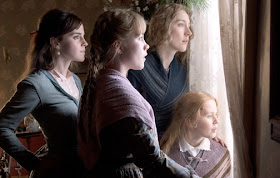Four stars. Rated PG-13, for sci-fi action and violence, and dramatic intensity
By Derrick Bang
I’ve no doubt fans will be dazzled by this long-awaited concluding chapter in George Lucas’ original nine-part serial — how could they not be? — but this film will resonate even more strongly with those who were between the ages of 8 and 25 back when the original Star Wars debuted in May 1977.
The sense of closure here will be far more emotionally powerful for that group.
One generation of Harry Potter fans grew up with the books (1997-07) and subsequent films (2001-11), but followers of The Force have lived with these characters for 42 years. For those folks, the dramatic impact of this new film’s final 15 minutes defies easy discussion. Suffice it to say, we get laughter, tears, anxiety, relief, regret and — most crucially — satisfaction.
Along with the knowledge — bottom lines being what they are — that we certainly haven’t seen the last of this galaxy far, far away (as the new Disney streaming service’s The Mandalorian demonstrates).
Getting to this film’s finale, however, is almost too much to endure at times. Goodness, but our heroes suffer!
Director J.J. Abrams wisely plays to the faithful with this ninth “original series” installment, following the pell-mell serial format that Lucas established four decades ago. The best Star Wars entries always have relied on the “divide and conquer” approach, sending individual characters on crucial sidebar missions, while the core plotline inexorably advances toward an appalling outcome. This prompts cross-cutting between events, simultaneously building suspense in numerous directions.
We hit the ground running, as always, and the pace remains frantic. Everything is propelled by John Williams’ exciting orchestral score, blending long-familiar character themes with plenty of fresh cues.
Our current heroes — led primarily by apprentice Jedi Rey (Daisy Ridley), reformed mercenary Poe Dameron (Oscar Isaac), and former First Order Stormtrooper-turned-good guy Finn (John Boyega) — learn that, horror of horrors, the “defeated” Galactic Empire’s evil-evil-evil Emperor Palpatine (Ian McDiarmid, returning to the role) still lives. Whether clone or spirit resurrected by foul Sith magic, the result is the same: Palpatine intends to resume his plan to dominate the universe.
To that end, he has overseen the construction of a massive fleet of First Order warships equipped with planet-killing cannons. Any world unwilling to be dominated … will be obliterated.







